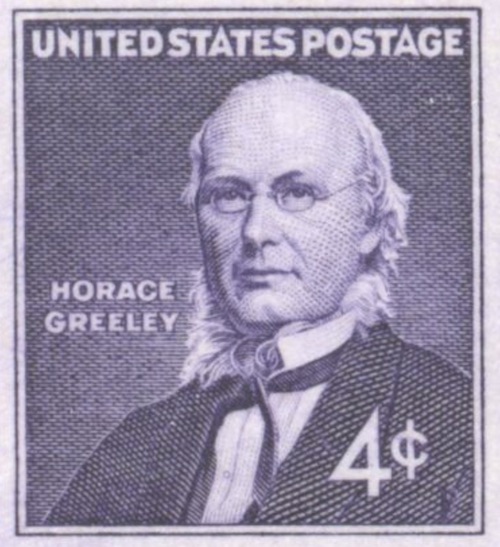|
Horace Greeley (1811-1872) was an American journalist, editor, and politician who played a significant role in the politics of the 19th century. He is best known for his work as the founder and editor of the New York Tribune newspaper and for his unsuccessful bid for the presidency in 1872. Born in New Hampshire, Greeley moved to New York City in the 1830s and began working as a journalist. He quickly became known for his progressive views on politics and social issues, and he used his platform as a journalist to advocate for a wide range of reforms, including abolitionism, women's suffrage, and labor rights. In 1841, Greeley founded the New York Tribune, which quickly became one of the most influential newspapers in the country. Greeley used the Tribune to promote his progressive views and to advocate for social and political reform. The newspaper played a key role in shaping public opinion on issues such as slavery, immigration, and the rights of workers. Greeley was also a prominent political figure in his own right. He was a member of the Whig Party in the 1840s and 1850s, and he played a key role in the founding of the Republican Party in the mid-1850s. He served briefly in the U.S. House of Representatives in the 1840s and ran unsuccessfully for the Senate in 1854. In 1872, Greeley ran for president as the candidate of both the Democratic and Liberal Republican parties. His campaign was focused on reform and anti-corruption, and he called for an end to the spoils system and the expansion of civil service reform. Despite his popularity, Greeley lost the election to incumbent President Ulysses S. Grant. Greeley died shortly after the election, but his legacy as a journalist and reformer lived on. The New York Tribune continued to be an influential newspaper for decades after his death, and his advocacy for social and political reform inspired generations of journalists and activists. |
